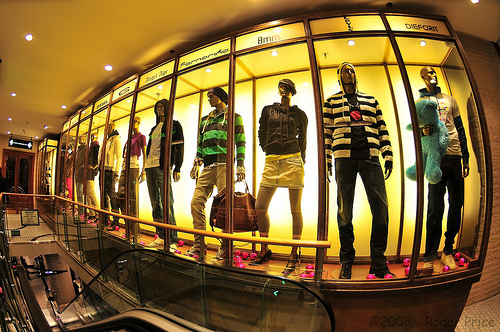Shopping for new clothes in Port Louis is less like retail therapy and more like one hair-raising experience after another. You need to be psychologically and physically prepared before entering a mall, something I’m still getting the hang of. Shop assistants have made a meal of me one too many times.
I recently walked into a clothing store in the tourist-filled Le Caudan Waterfront, and was immediately ambushed. “Where did get your boobs planted?” the owner asked lewdly. I ignored him and pretended to carefully inspect a Fedora hat, the price of which was way beyond my means.
“Is it really raining outside?” a shop assistant in the next store I entered asked, trying to strike up a conversation. I grinned, bit my lower lip and replied: “Sorry I’m just browsing. Cheers.”
As if to put me at ease and get me to stay, two other shop assistants in the store prodded me further. “You must be looking for something classier. Dinner date?” By this time I had adjusted my scarf, tripped over the wet mop on the floor, glued my ear to my Blackberry and faked answering a call. “Hello? Hello? Hel…” I was safely out of there.
I consoled myself by entering an Indian shop, thinking Indian staff would be less pushy. As I admired the summer floral dresses from Mumbai, the well-endowed shop lady approached me. “You’re blessed with curves,” she said, as if I didn’t appreciate myself. She thrust some fabric at me. “You’ll look good in these loose pants and sweater. Size 8.” These “loose pants” would be put to better use as a tablecloth but, out of respect, I relented and slipped into the change room with them.
Seconds later I heard her shout: “Do the pants fit? I mean, in there?” Before I could respond, the ultimate embarrassment occurred. The impatient, rude woman pulled back the curtain and exposed me to a group of stiletto-heeled young ladies! That was the deal breaker. I abandoned my purchases and walked out.
Privacy is not a consideration for shop assistants here. To some of them, a dressing room means a dressing down. One day I was trying on a dress that seemed a size too small, only to have a big-boned shop assistant barge in to ‘help’. “You got it wrong back here, wait,” she instructed, yanking the already tight belt tighter across my waist. As if that would make it looser.
For these shop assistants, the aim is to secure a sale at any cost from every shopper. Never mind that the jeans don’t fit or that it will shrink after one wash. “You inhale air, I push up,” the shop assistant is likely to say, grabbing your hip and manhandling your body into the garment. When her efforts fail, she will stop but never quit. “We still have nice scarves, Hermes bags, dinner plates, shoes …”
At the end of my shopping trips, I feel more than insulted but to get what you need in Mauritian malls, you have to brush off the annoyances and just swipe your credit card.
It’s not all bad though. The capital’s shopping trends can be gratifying at times. Some shops erect huge bins inside their stores with a notice: “Bring an item of old clothes every time you buy something new.” When I dropped two slightly used trench coats into a boutique’s exchange bin I was delighted to find that I became the owner of a pair of topaz stilettos. Shop owners say some of the old clothes brought back by customers are donated to charity, but no one really knows for sure. It is such a popular practice that I often see troops of college girls taking old clothes back to shops, announcing: “We’re going schwopping not shopping.” Some shops even offer “clothing surgery”, where they refashion old garments into new outfits.
The habit of exchanging old clothes also extends to the neighbourhood. Women gather for an afternoon of “swishing” – they exchange clothes that they are tired of wearing for someone else’s. Primrose skirts are swapped for fabulous suits. It’s a fun and coffee-filled event but beware: I got a deathly glare when I grabbed a Belgian sweater someone else was richly coveting.
Stella Boniro is a 23-year-old student at the University of Mauritius. Her goal is to be a fashion journalist in the near future.




